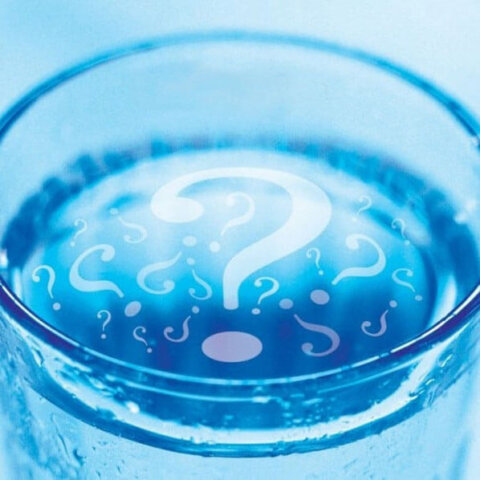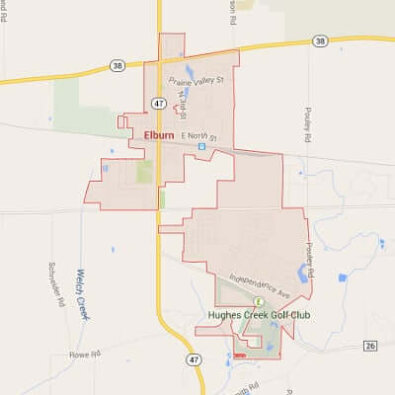Struggling with hard water in Elburn, IL? Angel Water understands the specific water challenges faced by residents here. Our high-quality water softening systems are designed to eliminate excess calcium and magnesium, providing soft, clean water for your home or business. With over 50 years of experience in the water treatment industry, we are dedicated to enhancing your water quality and ensuring your complete satisfaction.
Water Softeners in Elburn, IL
How Do I Choose the Right Water Softener and Get Started?
The process begins with a water test to identify contaminants. Understanding these issues helps us develop a solution. We then conduct a plumbing inspection to determine the best installation spot. Finally, we determine the type and size of the necessary equipment.
Thinking, “Can’t you just tell me over the phone? You installed my neighbor’s system!” We understand – we’re consumers too. However, your neighbor’s water or plumbing might differ slightly. Our goal is to ensure you have perfect water for drinking and bathing. We provide unbiased third-party water testing and employ licensed plumbers as required by Illinois law, prioritizing your family’s health and well-being.
Why Choose Angel Water?
Expertise:
Over 50 years of experience in resolving water quality issues.
Advanced Technology:
Our water softeners use the latest technology for efficient operation.
Customer Satisfaction:
Free water analysis and customized solutions tailored to your needs.
Qualified Professionals:
IDPH Licensed Plumbers in Illinois ensure high-quality service and regulatory compliance.
Highly Rated:
Over 1,000 5-star ratings on Google demonstrate our commitment to excellent service.
Licensed Plumbing Company:
The only water softening company in Illinois that is also a licensed plumbing company.
Lifetime Warranty:
The only company offering a lifetime warranty on our ERR-3700 series filters.
A+ BBB Rating:
An A+ rating with the Better Business Bureau shows our commitment to quality service.
Benefits of Water Softening
Prevent Scale Buildup:
Soft water helps prevent scale buildup in pipes and appliances, extending their lifespan.
Better Cleaning:
Enjoy cleaner dishes, softer laundry, and easier cleaning.
Improved Skin and Hair:
Soft water is gentle on skin and hair, reducing dryness and irritation.

Water in Elburn, Illinois
Elburn’s water come from ground water, including streams, lakes, rivers, ponds, reservoirs, springs, and wells. Ground water is the water that fills cracks and other openings in beds of rocks and sand. Each drop of rain that soaks into the soils moves downward to the water table, which is the water level in the groundwater reservoir.
Website: https://www.elburn.il.us/
Wikipedia: https://en.wikipedia.org/wiki/Elburn,_Illinois
0 contaminants above legal limits.*
In some states a small percentage of tests were performed before water was tested, and some contaminants were subsequently removed or diluted. As a result, some reported levels of contamination may be higher than were present at the tap. Results shown are based on individual samples and may not indicate a violation of the Safe Drinking Water Act, which often occurs only after prolonged tests show concentrations above a legal limit.
| Contaminant | Average Result | Action Level |
| Lead | 1.3 PPB | 1.3 |
| Copper | 0 PPB | 15 |
Contaminants that may be present in source water include:
Microbial Contaminants
These are viruses and bacteria from activities like agriculture, livestock, fish farms, waste water treatment plants, septic tanks, and landfills.
Inorganic Contaminants
Some types of inorganic contaminants include salt, sand, and metals. These contaminants can be introduced by normal city operations, such as snow plowing, street salting/sanding, road maintenance, farming, mining operations, industrial waste water, and residential sewer systems.
Pesticides and Herbicides
These are some of the most common sources of contamination for groundwater. Pesticides and herbicides have a wide range of uses, including commercial farming, residential gardening, and urban storm-water.
Organic Chemical Contaminants
Synthetic and volatile organic chemicals are the most common types of organic chemical contaminants. These are by-products from the industrial manufacturing process and/or oil and petroleum refining. Other sources include leakage from septic tanks and gas station tanks.
Radioactive Contaminants
Man-made causes of the contaminants can me from the mining industry of petroleum refining. These containment can also be naturally occurring, like Radon and Radium.
Local Water Polluters near Elburn, IL
Village of Elburn STP (1 N240 Thryselius Drive, Elburn, Illinois 60119) – 67 Violations
- 2004 – 2 effluent violations and 1 other violation
- 2005 – 24 effluent violations
- 2006 – 11 effluent violations and 18 permit violations
- 2007 – 3 effluent violations
- 2008 – 7 effluent violations
- 2009 – 1 effluent violation
Fishermen’s Inn (43 W 901 Main Street Road, Elburn, Illinois 60119) – 40 Violations
- 2004 – 40 effluent violations
- 2005 – 10 effluent violations
- 2006 – 9 effluent violations
- 2007 – 1 other violation and 15 effluent violations
- 2008 – 2 effluent violations
About Elburn
Elburn, IL, is located in Kane County, Illinois. This small “village” has expanded significantly in recent years, more than doubling its population between the 2000 and 2010 census. The “village” is located at the cross section of Route 47 and Route 38, about 46 miles west of the Chicago Loop.
Incorporated in 1886, the village of Elburn was founded by William Lance in 1834. Not long after the arrival of William Lance, Henry Wayne would arrive and build an Inn called the Halfway House. The inspiration for the name came from the fact this new “village” was the halfway point between Oregon, IL, and Chicago, IL.
As it did for many small towns during this time, the railroad would offer an opportunity to expand. In 1854, the Chicago and North Western Transportation Company would build the Blackberry Station, the actual name by which this village was first known.
The Chicago and North Western Transportation company eventually asked the village to change its name to Melbourne. However, the decision was made to shorten the name to Elbourne. Since, the village has shortened its “second” name to Elburne, and its now current form of Elburn.
Elburn remained a rural village through most of the 20th century. It was actually the popularity of tract homes that led to its population boom. The small village once known as Blackberry Station now has a population over 5,000 and is a Metra stop on the Union Pacific/West Line.

How do I know what system is right for my family?
Get A Free Water Test!
Just fill out the form below and we will reach out to schedule the best time for your free water test!
Would You Like to Know More About Water Quality in Elburn?
If you want to understand the quality of the water your family depends on everyday, contact us today. One of our representatives is standing by to help you schedule your free water test. We’ll send one of our local water expert to test the water at your tap and explain common problems and solutions for your specific water composition so that you can rest easy, knowing that your family is drinking the healthiest water possible.
